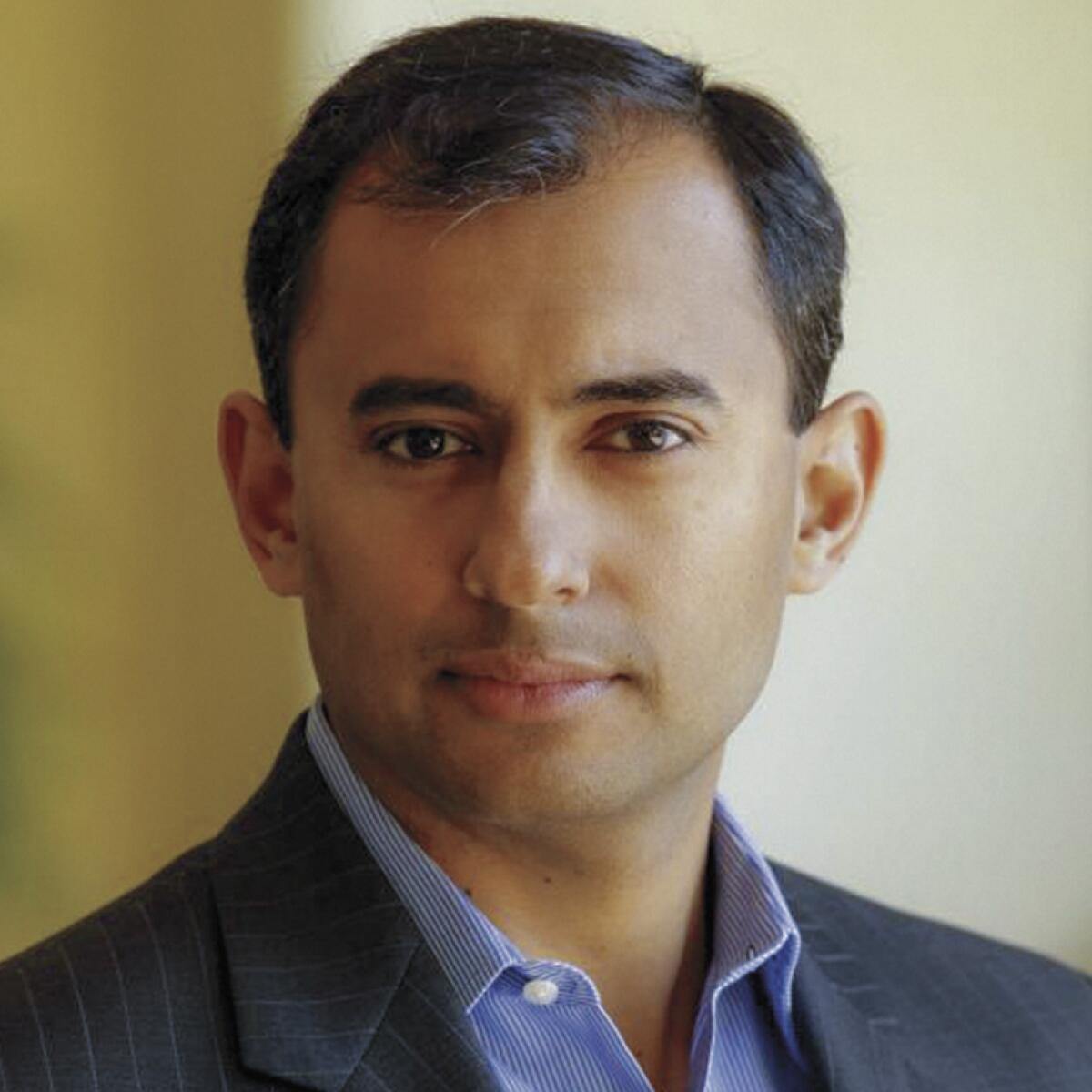Will Chuchawat, Amy Longo, Neil Malik and Chong Park Give Insights into the ESG Landscape

The ESG Roundtable panel is produced by the L.A. Times B2B Publishing team in conjunction with K1 Investment Management; Proscauer; and Ropes & Gray LLP.
The emerging focus on environmental, social and governance (ESG) related issues over the last couple years has become a fundamental driver of business plans, company missions and investor reporting. Clearly, ESG can no longer be ignored. To take a closer look at the ESG landscape, both in general and in terms of how it relates to CDFIs, and what is needed now to move these critical concepts forward, we have turned to some of the region’s leading experts, who graciously weighed in for a discussion and shared insights on the state of ESG programs in the business sector in 2022 and moving forward into 2023.
WHERE ARE THE OPPORTUNITIES FOR IMPACT IN ESG IN PRIVATE EQUITY?

Neil Malik, Founder & CEO, K1 Investment Management: We believe that it is critical to demonstrate what is possible within our own firm and then to promote these ideas to our portfolio companies and the broader private equity industry. On the Environmental front, we have utilized our Gold LEED-certified headquarters to generate most of its own electrical power. Today over 60%, and rising, of our employees drive an electric vehicle. We have also announced an initiative to plant over one million trees. However, we must still purchase carbon credits to offset the impact of our growing air travel. On social mobility, we are keen to democratize access to private equity. At K1, over 25% of our employees are first-generation college students, and we are actively encouraging more to apply for our open positions. We are also excited to share that almost half of our employees are women and a rising number, six, of our portfolio companies are now run by women. But we have more to do. On the governance front, we believe voting is a civic duty, and the lack of participation and engagement is a threat to democracy. Therefore, we recognize Election Day as a company holiday and encourage our domestic portfolio companies to do the same in an effort to drive voter turnout and volunteering. We are continually exploring more ways to improve and have a measurable impact within private equity.

Will Chuchawat, Co-Head, Private Equity and M&A Group, Proscauer: Private equity firms have long attempted to improve the performance of their portfolio companies through better corporate governance. But while the “G” in “ESG” has always been important in the industry, historically the “E” and the “S” might have been less of a priority. Given the increasing impact of private equity in the global economy, it is essential that private equity firms actively participate in the ESG movement. Private equity’s investment model – whereby private equity firms often control ownership positions, have access to detailed information, determine the compensation of company leadership and have a long-term perspective – gives it clear advantages over investors in public equities when it comes to implementing a sustainability agenda. With investors and consumers increasingly choosing to invest in and patronize businesses and industries that are environmentally and socially conscious, private equity firms are recognizing that investing in ESG initiatives will be important to long-term profitability going forward.
WHAT ACTIONS ARE FEDERAL REGULATORS TAKING AROUND ESG?


Amy Longo and Chong Park, Partners, Ropes & Gray LLP: Federal regulators are focused on “greenwashing,” or when a company misleads the public about how environmentally friendly its products or services are.
This practice is not new, but regulators have recently taken a keen interest in what businesses say about their compliance programs and climate impacts. The U.S. Securities and Exchange Commission (SEC) formed a Climate and ESG Task Force in March 2021. This year, with ESG as an explicit agency examination priority, the SEC has charged several companies with making false and misleading statements in their ESG disclosures, resulting in multimillion-dollar settlements. In the spring, the SEC proposed rulemaking that further targets ESG representations. The rules would require greater ESG-related disclosures and transparency and require ESG focus to invest 80% of the funds whose names suggest an value of their assets in ESG-type investments. The final versions of these rules are expected soon and will likely be challenged in court. Other federal regulators have also homed in on ESG.
“Promoting the investment returns community mission, and investment opportunities of CDFIs remains a big opportunity for their industry within the ESG framework.” — Neil Malik
In June, the U.S. Commodity Futures Trading Commission (CFTC) issued a Request for Information on Climate-Related Financial Risk, seeking public comment on potential environmental risks bearing on the derivatives and commodities markets. CFTC Commissioner Christy Goldsmith identified “greenwashing” as a practice that could hamper the development of the markets for derivatives. In April, the Federal Trade Commission (FTC) announced penalties of $2.5 million against Kohl’s and $3 million against Walmart for “greenwashing” violations. The FTC is also updating its “Green Guides,” a key marketing reference. Given the current enforcement environment, companies should take care of their ESG-related practices and representations.
WHAT CAN CDFIS DO TO CREATE MORE IMPACT AND PROVIDE AN OPPORTUNITY AS COMPELLING AS OTHER ESG INVESTMENTS?
MALIK: Many ESG investment offerings today are simply a re-packaging, or exclusion exercise, of a subset of marketable securities for clients. CDFIs have proven that financing minority and women homeowners and business owners is not only possible but ultimately profitable. Growing the public’s and investors’ awareness of the mission of CDFIs is a big opportunity. The mission of CDFIs can offer meaningful exposure within the ESG framework for impact-oriented investors. Promoting the community mission, investment returns and investment opportunities of CDFIs remains a big opportunity for their industry within the ESG framework.
WHAT ARE THE KEY LEGAL REGULATORY CONCERNS RELATING TO ESG/IMPACT INVESTING
CHUCHAWAT: One of the key legal regulatory concerns relating to ESG investing is the fact that the ESG performance and disclosure regime is currently fragmented. In the European Union, the European Commission has adopted specific directives on ESG, whereas, in the US, the growing focus on ESG has primarily led to voluntary, market-led responses – as opposed to new regulations. This fragmentation can make it difficult for companies to determine what ESG directives apply to them, and, in the absence of legal requirements, companiesmust decide whether to comply with one of themany voluntary ESG frameworks. These voluntary frameworks can vary considerably with different frameworks being preferred by different institutional investors. However, as investors continue to demand decision-useful and comparable data, this fragmentation is likely to be ameliorated in the near term with a number of voluntary disclosure frameworks announcing plans to standardize disclosure standards and the Biden Administration and various U.S. regulatory agencies putting forth initiatives and proposals to increase and standardize ESG regulations.
“With investors and consumers increasingly businesses and in and patronize industries that are socially conscious, environmentally and private equity firms are recognizing that investing in ESG initiatives will be important to longterm profitability going forward. — Will Chuchawat
MALIK: We are keen to see the impact of the SEC’s proposals to enhance ESG disclosures fromthis past May. The main concern we’ve seen from a regulatory aspect is reporting transparency and accountability. For example, when it comes to carbon emissions, there are few standardized metrics to uniformly report on the success of certain initiatives. The specificity in reporting is also becoming more important. Reporting on carbon emissions generally is no longer scope (1, 2, and 3) and give detail supporting acceptable – it’s now necessary to report each the data. We are also seeing this trend in the EU with Taxonomy Regulation, which focuses on providing the foundations of a sustainable and accurate labeling system. Even though taxonomy regulation is only inclusive of environmentally sustainable activities, the EU intends to introduce a separate taxonomy regulation for social investments, again reinforcing the importance of transparent reporting.
WHAT ESG-RELATED ENFORCEMENT ACTIVITY ARE YOU SEEING ON THE STATE LEVEL?
PARK & LONGO: Republican state attorneys general are investigating both consumer protection and antitrust theories related to the consideration of ESG factors by asset managers. Arizona’s attorney general announced his office’s probe in November 2021, and in August, nineteen state attorneys general co-signed a letter alleging that BlackRock’s ESG effortsmay violate both its fiduciary duties to investors and the antitrust laws. A similar group of state attorneys general is investigating the ESG ratings produced by Morningstar and its subsidiary, Sustainalytics. In September 2022, BlackRock responded to the attorneys general’s letter by noting that it provides investors with a variety of investment options and that its membership in organizations like Climate Action 100+ does not require it to pursue the same ESG initiatives as the groups’ other members. Interestingly, BlackRock’s response prompted a reply – froma Democrat, New York City Comptroller Brad Lander – accusing the world’s biggest asset manager of backtracking on its climate-related commitments. It is too soon to say where the investigations will lead. Given the high-profile nature of the issue, however, it appears the state attorneys general are seriously considering legal challenges on various grounds.
“Conflicting state laws and approaches will challenge fund managers as they work to discharge their fiduciary duties to state retirement plans with the political winds swirling around them. — Chong Park and Amy Longo
WHAT ARE THE KEY TRENDS YOU SEE FOR ESG GOING FORWARD?
CHUCHAWAT: Going forward, I see the importance and prevalence of ESG investing continuing to grow. Investors are increasingly concerned with the environmental and social impact of big businesses, and such investors are increasingly focusing their investments on industries and companies that align with their continue to focus more of their investments personal beliefs and interests. As investors in ESG-conscious businesses, such businesses and their leadership (including venture capital and private equity firms) will continue to put more and more emphasis on ESG initiatives. Such increased focus on ESG will continue to lead to additional ESG-related regulations and disclosures (both voluntary and required).
MALIK: There is a continued drive for more standardized reporting and disclosures, rather thanmany of the glossy brochures that are currently produced. Different parts of the world have focused on different elements within ESG. Many of our investors in Europe are quite focused on the environment, while domestic investors often ask about social issues as a top priority. While investors dutifully ask questions about ESG policies and initiatives in private equity, we have yet to see firms lose investors due to this growing area of focus and due diligence. One worrisome trend has become the politicization of ESG, which may hamper progress toward the United Nations’ sustainable development goals.
HOW ARE STATE TREASURERS AND LEGISLATORS USING THEIR POWER AND INFLUENCE TO AFFECT ESG INVESTING?
PARK & LONGO: State treasurers can determine where the substantial monies in state retirement plans are invested. Their approaches to ESG have also tended to split along party lines, generally fitting into four categories: (1) promoting the integration of ESG considerations in investment decisions; (2) restricting the use of ESG considerations in investment decisions; (3) promoting divestment from fossil fuel and/or firearms/ammunition companies; or (4) otherwise targeting entities that boycott fossil fuel and/or firearms/ammunition companies. For example, Texas, in June 2021, prohibited state banking contracts with financial firms that boycott firearms or energy companies. Recently, officials in Texas and West Virginia began notifying companies that their boycotting activities could limit their ability to conduct business with those states. Idaho, Oklahoma, and Florida are considering similar actions. In September 2022, thirteen state treasurers, including California’s Fiona Ma and Mr. Lander, signed a letter addressing the recent legislation that limits the consideration of ESG factors in investing. They stressed that such policies reduce competition and restrict access to high-quality managers. Combined, the 13 state treasurers have approximately $2.5 trillion in assets under management. Conflicting state laws and approaches will challenge fund managers as they work to discharge their fiduciary duties to state retirement plans with the political winds swirling around them.